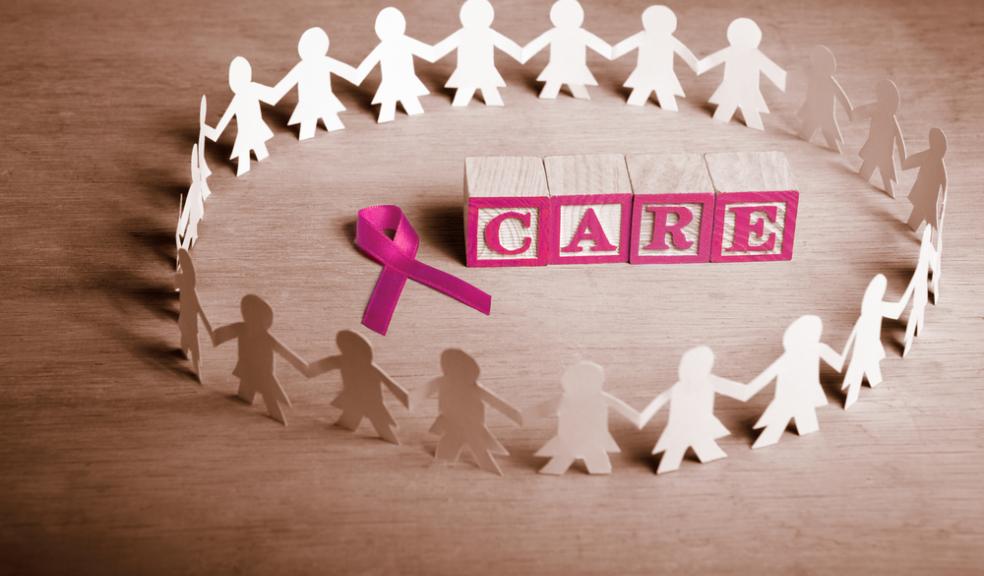
Major shift in breast cancer care on horizon as NICE recommends preventative drugs for 'at-risk' women
Hundreds of thousands of women across England and Wales could be spared the distress and uncertainty of a breast cancer diagnosis by taking a daily pill to help prevent the disease. Updated guidance by the National Institute for Health and Care Excellence (NICE) says the NHS should give tamoxifen or raloxifene to particular groups of women with a family history of cancer [1] because the drugs can help stop them getting breast cancer if they are taken for five years.
Roughly 50,000 women and 400 men are diagnosed with breast cancer each year in the UK [2], making it the most common cancer in the country. Of these breast cancer cases, one in five will be associated with a family history of the disease while hundreds of thousands of otherwise healthy people will be at risk of developing the disease because it runs in their family.
Professor Mark Baker, Director of the Centre for Clinical Practice at NICE, said: “People are considered to have a family history of cancer if a number of their relatives have lived through, or died from, certain cancers like breast, ovarian or prostate.
“Currently, if someone has a family history of cancer, there are two options available to them. If they are tested and are found to have a genetic reason for their family's cancer history, they may be eligible for annual screening so that any tumour will be detected early on. Or, they can opt for surgery to remove their breasts. These genetic mutations can also cause ovarian cancer so in some cases women may also decide to have their ovaries removed. This is major surgery and can be very traumatic for those involved.
“Our updated guideline now gives women more options in how they manage their risk of breast cancer; those with a ‘moderate' or ‘high' risk of developing breast cancer because of their family history but who have not had the disease themselves can now be offered tamoxifen or raloxifene for five years to prevent it. Although neither drug is licensed as a preventative treatment in the UK, clinical evidence shows they are an effective option for many women and could be preferable to surgery.”
As well as the new recommendations on drugs to prevent the disease, the updated NICE guideline also calls for more men and women to be tested for genetic mutations [3] that cause cancer and can be passed down through families. Not only does it recommend halving the ‘threshold' at which genetic testing is offered but now it says the NHS should offer testing to otherwise healthy people if it's likely they have a genetic mutation and have no living relative with cancer who could be tested instead.
Professor Gareth Evans, a Consultant in Clinical Genetics at St Mary's Hospital in Manchester who helped to develop these recommendations, said: “Reducing the threshold for genetic testing will inevitably mean more men and women being seen but this is something that's already happening in some parts of the country. Testing unaffected relatives will also have an impact on services but genetic clinics are able to carry out testing much quicker nowadays - between four and six weeks in some cases - and the cost of genetic testing is dropping substantially. Weighted against the possibility of preventing breast cancer in high-risk women, this is a cost-effective option for the NHS.
“The whole guideline is a major move forward in that more women than ever before now face the possibility of doing something tangible to reduce their risk of breast cancer.”
The updated guideline on familial breast cancer is now available from the NICE website. While not mandatory, NICE clinical guidelines are regarded as best practice and the NHS is encouraged to follow the recommendations as set out in the guidance.
[1] A family history of cancer can be defined as having several relatives who have had breast, ovarian or a similar cancer such as prostate. Not only are people with a family history of cancer at increased risk of developing breast cancer, but they are more likely to develop the disease at a younger age. The type of breast cancer can also be more aggressive.
[2] These figures have been taken from Cancer Research UK's website and were calculated from data provided by the Office for National Statistics, the Northern Ireland Cancer Registry, Welsh Cancer Intelligence and Surveillance Unit and ISD Scotland. More information can be found at: http://www.cancerresearchuk.org/cancer-info/cancerstats/types/breast/inc....
[3] Often (but not always) a family history of breast cancer can be caused by a genetic mutation - a fault in a gene - which can be inherited from parent to child. There are two key genes in a person's body - BRCA1 and BRCA2 - which, if faulty, greatly increase the risk of developing breast cancer. Genetic mutations can be passed down through the generations. People with a faulty BRCA gene also have an increased risk of developing ovarian, pancreatic or prostate cancer. Genetic testing can identify if a person has a genetic mutation that can cause cancer.













